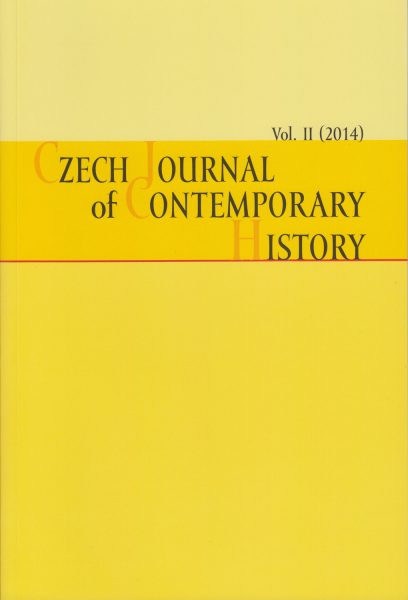Lessons from the Crisis Development The Picture of the Prague Spring in “Normalization Prose”
Lessons from the Crisis Development The Picture of the Prague Spring in “Normalization Prose”
Author(s): Alena Šidáková FialováSubject(s): Management and complex organizations, Politics and Identity, Identity of Collectives
Published by: AV ČR - Akademie věd České republiky - Ústav pro soudobé dějiny
Keywords: crisis development; 1970-1989; Prague Spring;
Summary/Abstract: The article considers the picture of the year 1968 and what is popularly known as the “Prague Spring” as it appears in establishment prose fiction from the “Normalization” period (that is, the return to hard-line Communism with the defeat of the reform wing of the Party and the years of the Soviet occupation, 1970-89). Normalization fiction – in accord with the government publication Poučení z krizového vývoje ve straně a společnosti po XIII. Sjezdu KSČ [Lessons from the Crisis Development in the Party and Society after the 13th Congress of the Communist Party of Czechoslovakia] – tried to legitimize the policy of Normalization as a new stage in the development of Socialism. The author analyses the plans and model solutions, which helped to form an ideologised interpretation of social development in Czechoslovakia from January to the Soviet-led intervention of Warsaw Pact troops in late August 1968. The article also considers how the authors of this fiction (a total of sixteen novels, the best known of which is Alexej Pludek’s anti Semitic Vabank [Gamble] portray the broader historical context, how they explain the motivation and aims of the leaders of the reform movement and describe the participation of various social strata in the political events. Some of these works are instructive models of the future life of the main characters and their orientation in the new circumstances in the phase called “real, existing Socialism” in the 1970's and ‘80's. Apart from that, the article considers how established literary critics accepted attempts in belles-letters to depict the recent “crisis years,” from which the new regime hoped to distance itself as clearly as possible.
Journal: Czech Journal of Contemporary History
- Issue Year: II/2014
- Issue No: 2
- Page Range: 77-100
- Page Count: 24
- Language: English

